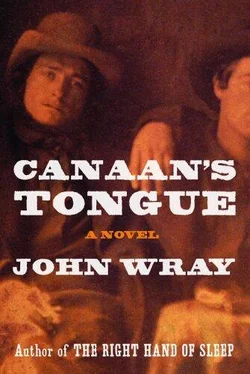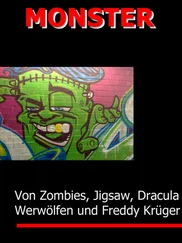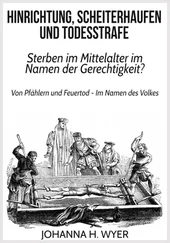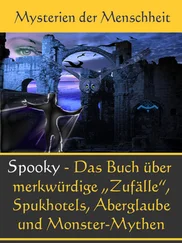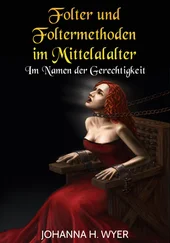Morning, Asa, Virgil says. Careful, now. Clem is watching us from her cat-seat.
Clementine talks with the Redeemer that way, Virgil.
I know.
Listen to me, Virgil. Please. The Redeemer and I share the same idea.
Virgil smiles. What idea is that, Asa?
To make me sick, I answer. That I might learn endurance.
ONE WHIP LAID LENGTH-WISE IN A LINE, frontsteps of the mansion to the old poplar tree, two whips end-to-end, back porch to the cabins, four whips configured into a diamond, eighteen feet by eighteen feet by eighteen, one thousand diamonds into a net, neighbors and family and children, nets to catch stray birds, strung out across the water, niggers dressed in net-skirts, Heaven a high, cold house with nets strung across the windows, outside the neighbors, the friends, the chattering family, eighteen whips each eighteen feet laid out in a chain, a stable full of horses, hat-box full of bottles, God laughs — Asa!
Then forgives.
THE LIMBS OF THE FRUIT TREES along the fence look like arms and legs. Virgil is offering me a choice—: to tell him the history of my greatest exploits, or to die.
That hat-box you had in Memphis, Asa. He looks me in the face. Asa!
Yes?
That black box. Do you recollect it?
Parson has it, I say, blinking.
Virgil frowns. Parson.
I feel much better now, Virgil. Pray let’s make use of it. There’s very little time.
First tell me about the hat-box.
I lift my shoulders. Samples. Cuts. A project.
He looks at me. Research?
Yes. That.
What would Parson want with it?
Parson is a castrato! I snicker. A singer in the choir.
Virgil looks me in the eye. Were all the cuts from niggers?
No sir. Some were from dirty old white men.
PLACED IN SOLUTION of carbon disulfide sample desiccates, reduces, color of wood-smoke, color of butter, scars, gouges, incision-marks fatten and blister, cat-fish gathered up in nets, family property, Federal state and district, oil, coal and natural gas, stately ladies of New Orleans tilt and squat over cast-iron pails, quadrilles, quarantine, quadroons, Creole bandy-legs, red-bones, over the cast-iron fathers of New Orleans. Say, Virgil—:
THEY ALL LOOK THE SAME, you see. In that solution.
Virgil is quiet. They all look like nigger skins.
I say nothing, but my heart is flying toward him—: Yes.
Virgil rubs his face. You might be onto something there, Asa, he says. Laughing as he says it in his heart.
Yes.
I still don’t see what Parson would want that hat-box for.
Shall I tell him? He has three locks of your hair, Virgil. And of mine.
Virgil stops. Takes hold of the fence-rail with both his hands. Whitens. You don’t mean. You don’t mean to say, those bottles—
I lift a trouser-leg, disclosing a bright rectilinear scar.
He pants. You buggered fool, Asa. Who else did you cut?
Thaddeus Morelle, a lock of hair. Goodman Harvey — generous, obliging — a snippet of hide. Virgil Ball—
Virgil heaves me back against the fence. You never cut into me, you son-of-a-bitch. You never — with your limp white lady-hands. You never did.
Allow me to write a brief chapter, Virgil. Virgil —:
VIRGIL’S WHITE ARM UNCOILS. I fall sweetly to earth. I wanted to reconcile opposites, Virgil. Occult knowledge and science, black hide and white hide, the healthy and the sick—
By God, Asa. You’d better tell me something I want to listen to.
He keeps it up in his attic, I say.
What?
The box. The cuttings. Everything I took. I look up at Virgil. And I’ll tell you something more.
Virgil turns and starts toward the house. If you’re only spinning thread, you moon-faced bastard, on my mother’s grave, I’ll—
Virgil! I moon-face at him. Stop a moment further, Virgil! There’s more to tell.
I’ve heard enough, Asa. You can dribble the rest out later.
Later is an open grave, but Virgil cannot know this.
ASA TRIST, GENTLE-FARMER’S SON, spit on at birth, mother-coddled, good worker, learned well the following—: the Hand of Glory. Cut a hand from a runaway and wrap it in a winding-sheet. Press it thoroughly to drain the fluid from it. The blood, the water, the lymph. Keep it for a week in an earthen jar mixed with pepper and saltpeter under the ground. Dry it in the heat of the sun or if the sun is not ample in a cotton-wood-fed furnace. The fat which runneth from the hand is mixed with wax to make a candle. Said candle is then put into the hand’s own fingers. Light from said candle will cure any spell of whiteness. Light from said candle will bring horrors to a child.
MY FATHER WAS WELL-KNOWN TO THE REDEEMER, Virgil, as you know.
Virgil looks back at the house. I know it.
You walk the grounds each day, with Delamare. The same rounds each day, exactly. Why?
For Christ’s sake, Asa—
EVERY day, I say again. I close my eyes. You’ve never noticed it?
He curses. What, Asa? What should I notice?
I raise my left hand, holding up three fingers. Thaddeus Morelle, at the privy. Goodman Harvey, beside the stables. Now there’s a hole by the tobacco-shed.
Virgil blinks twice. I know, he says. I’ve seen it.
Dodds dug it. Parson helped him.
Stone-faced now. Not running up the hill. Listening to me. And?
Two holes, connected, make a line. I work my mouth into a grin. Three holes, now. Three holes make a figure.
That’s right, Asa. For the birds to look at.
An angel would see it, I say. Looking down from on high. I take in a breath. Or even from the attic.
His eyes get rounder. He fashions the word ‘attic’ with his lips.
I killed my mother when I was born, Virgil! And my father was born blue-blooded out of me.
He’s off and running now, stumbling and cursing. Off toward the house.
Good-bye, Virgil. Good-bye, house!
Take a pencil with you, Virgil! I shout after him. Make a sketch!

In using hair or other parts of the body, it is essential to make sure they come from the correct person, as is suggested by the cautionary tale of John Fian, school-master of Saltpans in Midlothian, which is told in a pamphlet of 1591, “News from Scotland.”
Fian conceived a passion for the older sister of one his pupils and persuaded the little boy to bring him one of her pubic hairs. When the boy tried to take these hairs from the sleeping girl, she awoke and cried out. Their mother came and, discovering what had happened, took three hairs from the udders of a young heifer and gave them to the boy, who passed them on to Fian. Fian “wrought his art upon them” and in a little while the heifer came to him, “leaping and dancing upon him,” and pursued him everywhere, “to the great admiration of all the townspeople of Saltpans.”
COLONEL —You asked to see me, Virgil?
VIRGIL —I’ve been to the top of the house, Colonel. To the attic.
COLONEL (PAUSE) — You’ve been to the attic.
VIRGIL —That’s right, Colonel. I made a sketch.
COLONEL —Hold on a bit, Virgil. You’re carrying on like poor Asa, bless him. Sit down a moment and catch your air.
VIRGIL (SHAKES HEAD) — You’ve been keeping clear of the real business all this time. I know that now—; and I don’t blame you for it. But take a look at this map of the grounds I’ve drawn. It just might give you pause.
COLONEL —I can’t think what you’re getting at. The Redeemer himself appointed me in charge of — in head of — you know as well as I—
Читать дальше
